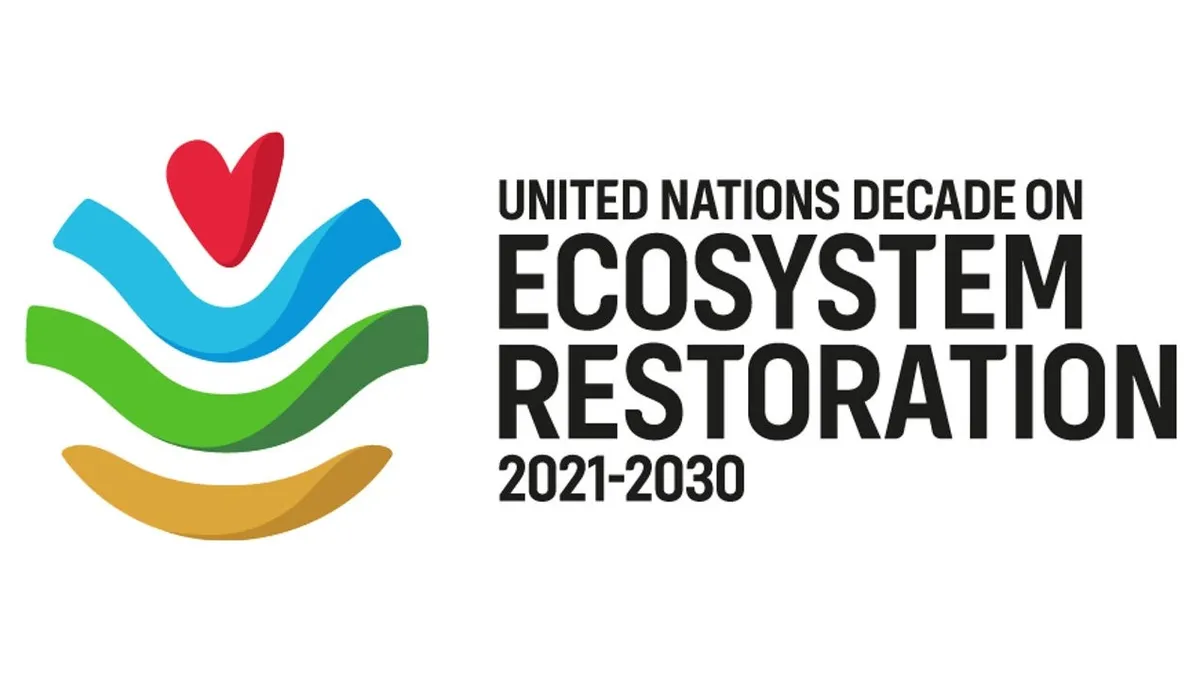WOCAT’s Marathon of events to launch UN Decade for Ecosystem Restoration
June was a month of inspiration, discussions, and action for the World Conservation Approaches and Technologies (WOCAT) with a marathon of events not only to anchor ideas for restoring life to land but also to make ideas reality and put restoration in action through trusted partnerships and a stronger network at all levels. Shortly after WOCAT launched May Newsletter (WOCATeers, the newsletter is back!), it had the honour to express ideas and share knowledge about how to tackle restoration, land degradation, and to build back better. The series of events led to the launch, on World Environment Day, of the UN Decade aiming to prevent, halt, and reverse ecosystem restoration.
With WOCAT’s main approach to heal land for ecosystems and people, it kicked off with an event on the role of Sustainable Land Management (SLM) in Ecosystem Restoration in collaboration with United Nations Convention to Combat Desertification (UNCCD) to launch the joint publication
https://www.unccd.int/news-events/role-sustainable-land-management-ecosystem-restoration
– with a summary here and the full publication coming soon. The event with peers helped present the publication with its benefits: on-the-ground solutions for restoring and maintaining the 8 ecosystems of the UN Decade, but also to take home important messages such as:“SLM is the key to unlocking the potential of land to achieve multiple benefit for people, the climate and nature.” Barron Orr, UNCCD Secretariat.
In addition, WOCAT partners shared their good practices. The International Centre for Integrated Mountain Development (ICIMOD) shared solutions to inspire communities to take up springshed management work, a sustainable, gender and socially inclusive practice. The International Center for Agricultural Research in the Dry Areas (ICARDA) showed how the mechanized water harvesting practices using Vallerani System could help stop degradation and bring back an ecosystem to its initial services. Finally, Uganda Landcare Network chose to bring forward a focus on youth and SLM practice Zero grazing and biogas that permits high rates of school attendances rather than being in the field and grazing cattle (watch again here!)
Our WOCAT Executive Team focal points has been supporting the dissemination of knowledge and development of capacities for the UN Decade on Ecosystem Restoration 2021-2030 through a task force on Best Practices led by the UN Food and Agriculture Organization (FAO) and composed of 43 global leading organizations. The taskforce was created to address the large technical barrier and capacity to design, implement, sustain large scale ecosystem restoration initiatives. WOCAT helps in this. During the online event, important points were covered such as sharing successes and failures to learn from one another, having reachable stakeholders for collaboration opportunities and for the health and performance of networks, broader sharing and co-development of principles, and the support towards the restoration movement and taskforce with the Global SLM Database with solutions at hand.
Wrapping up the first batch of events helped feed into other strengthening discussions to WOCAT’s purpose during the Global Landscape Forum (GLF) Africa, the first digital conference about Africa’s drylands and integrative restoration practice. Events covered building partnerships, launching the GEF-7 sustainable dryland landscapes impact program and white paper, showcasing new platforms, technologies and innovations such as the Framework for Ecosystem Restoration Monitoring (FERM) and the Dryland Restoration Initiative Platform (DRIP), or an Atlas with a strong focus on rangelands and drylands. Aside many partners and peers (UNEP, WWF, ICRAF, IUCN, GEF, Southern African Development Community, etc.), in addition to digital solutions (from the open access Global SLM Database with over 2000 SLM practices contributed by practitioners working in more than 130 countries), WOCAT put forward the importance of differentiating solutions per rangeland use system and to prioritize nature-based solutions, use of co-developed knowledge, impact evidence for decision making, equality and trust in the ownership of the knowledge process and development of communities of practice to foster shared learning, tools, platforms and stories.
The week ended with World Environment Day and launch of the UN Decade for Ecosystem restoration sharing on social media (Twitter and Facebook – follow us!) different on-the-ground good practices (e.g, storing carbon, providing habitat, etc.) for key ecosystems from freshwaters, forests, farmlands, to urban areas for land and people.
On this end note, WOCAT’s overall aim and commitment to the UN Decade, coming out of this marathon is, through sharing knowledge and a healthy and strong network, scale up the restoration of degraded ecosystems.
WOCAT also recently celebrated Desertification and Drought Day with new multimedia products and stories from WOCAT’s consortium partner, Centre for Development and Environment, showcasing facts, figures and solutions feeding into our Generation Restoration objectives.
Thus, watch out for the full publication with UNCCD – don’t miss it!
It’s the Generation Restoration and we’re all playing our part!
